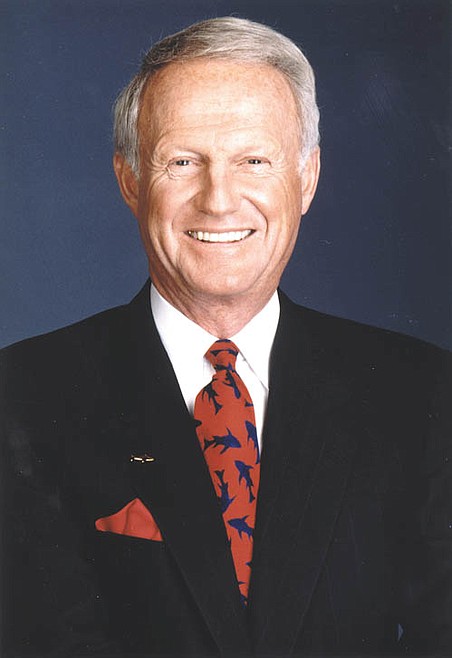Be true to yourself
HARVEY MACKAY | Coeur d'Alene Press | UPDATED 1 year, 10 months AGO
One of the most famous lines in Shakespeare's "Hamlet" consists of Polonius' advice to his son, Laertes. He says: "This above all: To thine own self be true, And it must follow, as the night the day, thou canst not then be false to any man."
We've doubtless heard that quote many times, but what does it mean? In today's language, it's all about authenticity. Authenticity is acting in accordance with one's true self. Being authentic means behaving in congruence with one's values, beliefs, motives and personality.
Everyone has a personality. It is a blending of traits, thought patterns and behaviors, all taken together. An authentic person is true, reliable, dependable, faithful, trustworthy, accurate, genuine and realistic.
Authenticity is more than just a popular buzzword these days — it is a way of living that many strive for in their personal and professional lives. The problem is that we live in a society that tries to get us to conform to the dominant culture, taking away our authenticity.
As American poet e.e. cummings said many years ago: "To be nobody-but-yourself — in a world which is doing its best, night and day, to make you everybody else — means to fight the hardest battle any human can fight; and never stop fighting."
Authenticity is a cornerstone of any successful relationship, both personal and professional. In the sales world, it is no different. Authenticity is about being genuine in your interactions with clients and colleagues. It is about being true to yourself and your values and conveying that honesty in every deal you make and every promise you deliver.
For me, authenticity in sales comes down to trust, long-term relationships and consistency. Authenticity fosters trust, the bedrock of any business transaction. If your clients believe in you, they are more likely to believe in what you are selling.
Authentic interactions lead to stronger, more resilient business relationships. People want to do business with those they feel are real and relatable.
Being authentic means you are the same person in every situation. Clients and colleagues know what to expect from you, which builds confidence in your consistency.
So how do you demonstrate authenticity? Three ways: transparency, listening and personal touch. Be open about what you can and cannot do for your customers. Don't overpromise and underdeliver. Show genuine interest in your customers' needs and concerns. Active listening can go a long way in showing that you care. Share appropriate personal stories or insights when they can add value to the conversation. This can humanize interactions and create deeper connections. People remember how you made them feel, and being genuine leaves a lasting positive impression.
There is a personal satisfaction that comes from knowing you've been true to yourself and others. It is not just about making a sale; it is about how you make the sale.
In sales, authenticity means making real connections, being a person of integrity, and ultimately, it's about being the kind of salesperson that customers want to return to time and time again.
Author and motivational speaker Simon Sinek offers this food for thought: "Authenticity is about imperfection. … To be authentic is to be at peace with your imperfections. The great leaders are not the strongest, they are the ones who are honest about their weaknesses. The great leaders are not the smartest; they are the ones who admit how much they don't know. The great leaders can't do everything; they are the ones who look to others to help them."
I am inspired by that assessment. Sinek is telling us we don't have to be perfect, but we need to be the best we can be. We can acknowledge our weaknesses, but we work with others who can help fill in our blanks. His words are both comforting and challenging.
So whether or not you are a fan of Shakespeare, keep his words at the front of your brain. If you wouldn't want to be your own friend or your own customer, it's time to check your authenticity — truthfully.
Mackay's Moral: Who you are is judged by what you are.
• • •
Harvey Mackay is the author of the New York Times bestseller "Swim With the Sharks Without Being Eaten Alive." He can be reached through his website, www.harveymackay.com, by emailing [email protected] or by writing him at MackayMitchell Envelope Co., 2100 Elm St. SE, Minneapolis, MN 55414.

